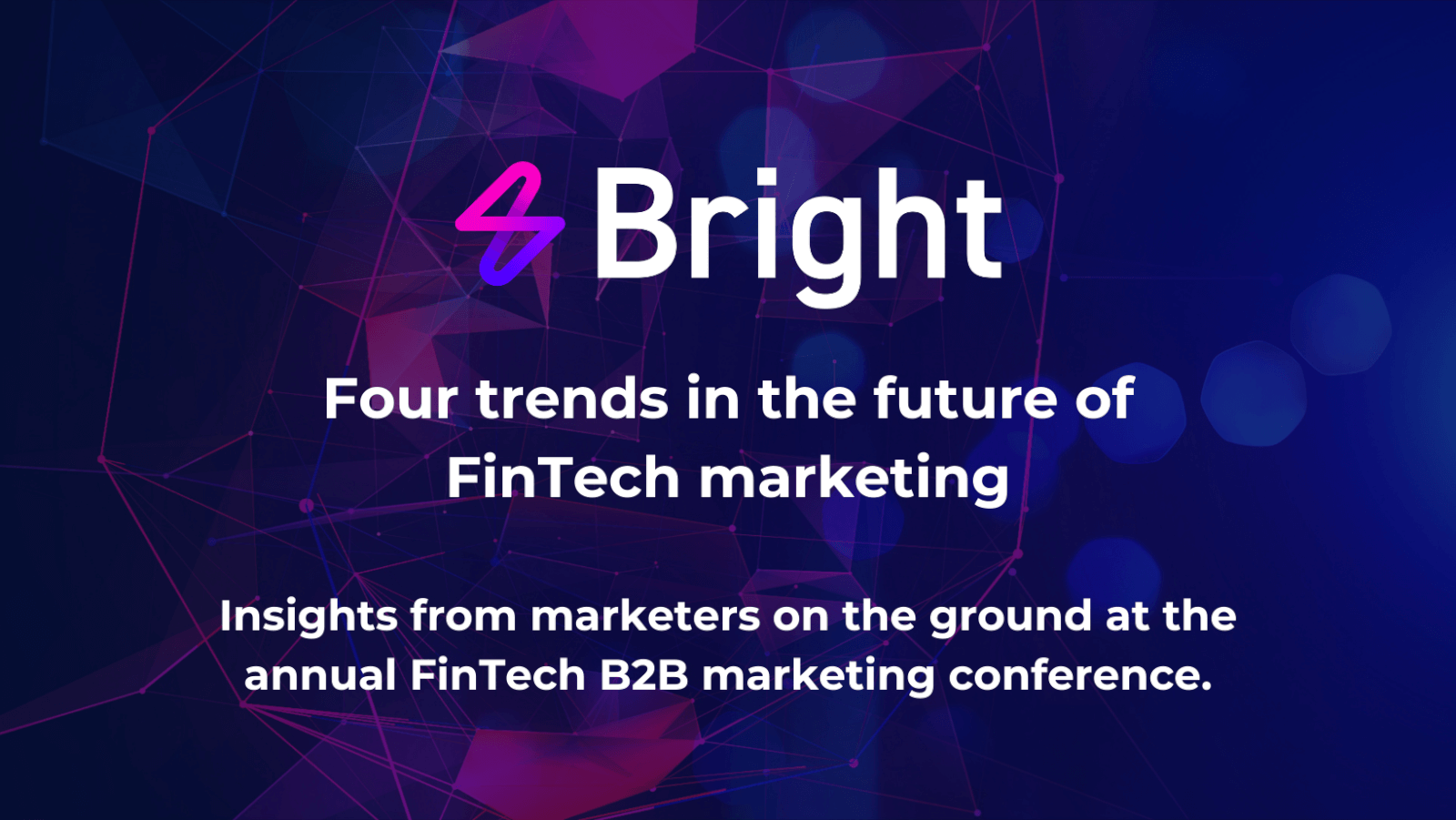Insights from marketers on the ground, discussed at the annual FinTech B2B marketing conference.
As with many other sectors, the financial services industry is going through a continued period of disruption. Digital-first services are changing the way customers interact with brands as the move towards digital has increased customer’s expectation on service.
When I was asked to join the FinTech B2B Marketing Conference as a guest panellist, I was keen to share insights and experiences of agile marketing in the FinTech market, however the real value was found in the conversations had with my marketing peers about the immediate and undeniable factors that are influencing the marketing landscape for FinTech marketers today.
Navigating this ever-changing environment is tough at the best of times but navigating it post-pandemic brings its own host of disruptions. Here are four trends that I think will be influencing the industry over the coming months.
The role of critical thinking in data analytics
The goal of collecting and analysing data is to turn information into valuable insights and to create valuable insights, we must ask valuable questions. Our attention has too long been focussed on the hard skills in data – coding, visualisation, modelling etc. What seems to be far lower down the totem pole are the soft skills for making data useful, accessible, and valuable. Most importantly, the ability to critically think and analyse.
Critical thinking is a manner of thinking that employs curiosity, creativity, scepticism, analysis, and logic – the good news is, that critical thinking can be learned and upskilled. Finding the balance between trusting the data and our gut feeling is the key to discovering insights that add value.
The pandemic and the marketeer
I’m sure like me, you’re fed up with talking about the pandemic and how it has affected business over the past two years, but inevitably, it’s still impacting channel performance and creative a skills gap in the market.
The data we have on channel performance from the last two years is skewing our predictions – what worked in 2020 to deliver on demand gen seems to be shifting again. LinkedIn for example is currently working better for small businesses than it is for larger organisations – something that has changed dramatically over the past year and a half.
The great resignation, influenced by the pandemic means that the quality of contact data has become an issue as many people have left roles, challenging marketers to maintain and clean databases to ensure campaigns remain successful.
When one succeeds, we all succeed – the value in partnerships
Budget allocations have shifted over the past few years, with more money being invested into digital marketing and less on live events. Now that events have resumed and audiences are keen to attend, where will the money come from to satisfy both needs?
Brands need revenue and growth and have little appetite for further risk. Partnership marketing is a perfect antidote, brands can partner up on complimentary services and solutions to share resources and create value led events without having to risk the costs. The current circumstances highlight the virtues of creative, direct teamwork, so my advice is to find innovate ways to create long lasting relationships and partnerships that work for everyone.
Brand vs. Demand Generation
An age-old debate which every marketeer has had to negotiate, the truth is both are just as important, and one does not work without the other. A business with amazing brand presence but no leads will struggle to sustain itself. Whereas businesses that prioritise demand gen, tend to get a lot of prospects interested in a solution but will evidently lose out to competitors that have a stronger brand identity and clear values that cut through an already overpopulated market.
The financial services sector has always been considered as agile, with the requisite to adjust to ever-changing external factors. This inherent dynamism makes it an exciting and cutting-edge marketplace with scope for disruptive marketing tactics and experimentation at every turn, from brand to local and central levels. How can you enable experimentation approach, with a growth mindset and agile marketing approach to how your team execute.
Discover how Bright can inject agility into your business to maintain an edge on competition. Get in touch with us today to chat all things agile.


